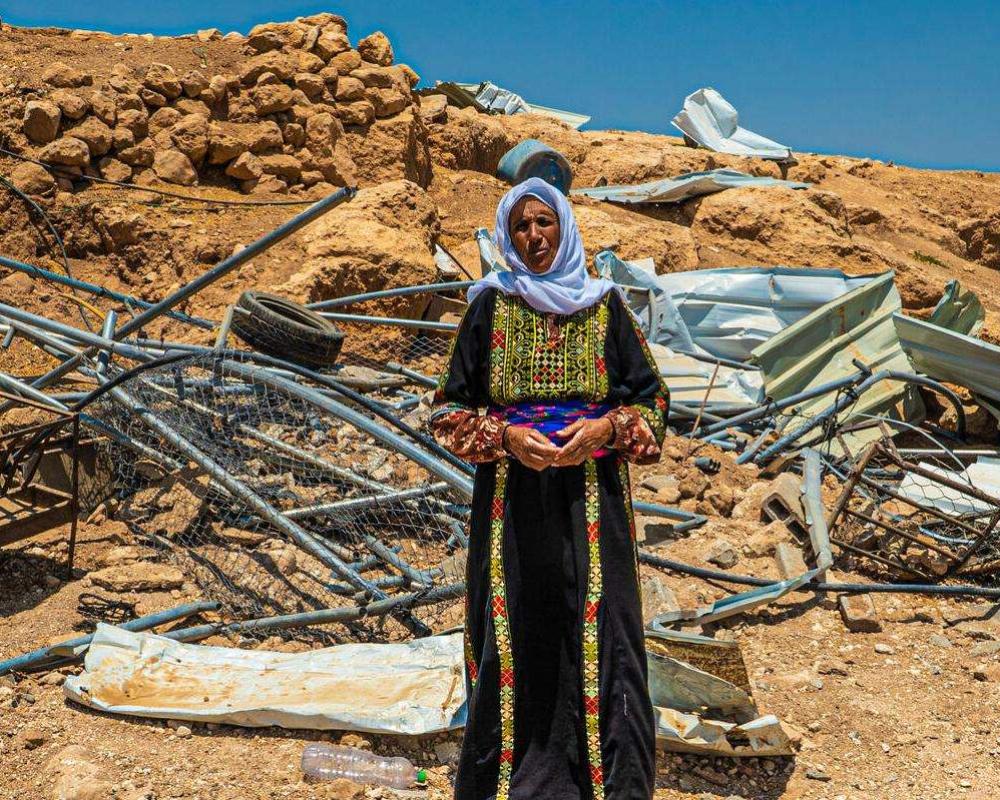
MASAFER YATTA, Hebron West Bank / PNN /
As violence by Israeli settlers and military forces escalates across the West Bank, residents of Palestinian communities such as Masafer Yatta are experiencing a devastating mental and physical toll, according to Doctors Without Borders (Médecins Sans Frontières, MSF).
The intensification of attacks—beatings, home demolitions, road blockades, and the destruction of farmland—has created a daily environment of fear and trauma, especially for vulnerable groups including children, women, and the elderly.
“Some villages in Masafer Yatta have seen up to 85 percent of their homes demolished,” said Frederieke Van Dongen, MSF’s humanitarian affairs manager in Hebron. “We’re seeing a sharp rise in mental health needs among our patients, driven by near-daily attacks often carried out by settlers accompanied by Israeli soldiers.”
Health Services Disrupted, Access Blocked
MSF operates mobile clinics in the region to provide primary health care and mental health support. However, repeated settler violence and military restrictions have severely disrupted operations. Ambulances have reportedly been blocked from accessing communities following attacks, delaying medical care.
“In June 2025 alone, 94 percent of new mental health patients at our Hebron clinics sought help following violent incidents,” said Van Dongen.
Palestinian residents describe a sustained campaign of intimidation.
“They came in three vehicles—about 17 settlers,” said Qusay Al-Amour, a resident of Masafer Yatta, recalling a violent incident. “They beat me, my father, and my brother. That night, they returned and destroyed our shelter, the clinic, and the mosque. My father was in critical condition. My brother was unconscious for days. It took over an hour before an ambulance was allowed through.”
Despite physical injuries and psychological distress, Al-Amour remains defiant. “They come almost every day, even at night. But are we leaving? No. We’re staying. My hope is that one day they will leave—and we can live in peace.”

Psychological Strain and Displacement
MSF warns that the constant threat of violence has led to widespread anxiety and trauma among Palestinians. Children have shown symptoms of post-traumatic stress, including panic attacks, nightmares, and difficulty concentrating in school.
“Everyone is affected,” said Van Dongen. “People constantly run through worst-case scenarios—‘Will I be able to protect my children if settlers come? Will my elderly mother be able to flee if we’re displaced?’ This uncertainty eats away at people’s mental health.”
Residents say Israeli forces often do not intervene—or at times accompany settler groups during violent incidents. This perceived impunity is fuelling distrust and hopelessness.
International Calls for Action
MSF has joined other humanitarian organisations in urging international stakeholders to act.
“The recent increase in violence is part of a broader policy of forced displacement and de facto annexation,” Van Dongen said. “Israel, as the occupying power, has a legal obligation to protect civilians. Instead, it is enabling or participating in attacks.”
Van Dongen added that the international community has “remained silent for too long” and called for immediate political and economic pressure to halt actions that are “deliberately pushing Palestinians off their land.”

Compounded by Regional Instability
Access to affected communities is further complicated by military checkpoints and the broader security climate, including a recent 12-day conflict between Israel and Iran.
Field teams report delayed humanitarian interventions, impassable roads, and growing needs across the West Bank, especially in isolated areas.
Despite the threats, many in Masafer Yatta say they will remain.
“I was born here, and I will die here,” said one man, standing among the rubble of his demolished home. “We’ve lived through 1967, 2011, 2017, and now again. But this land is ours.”